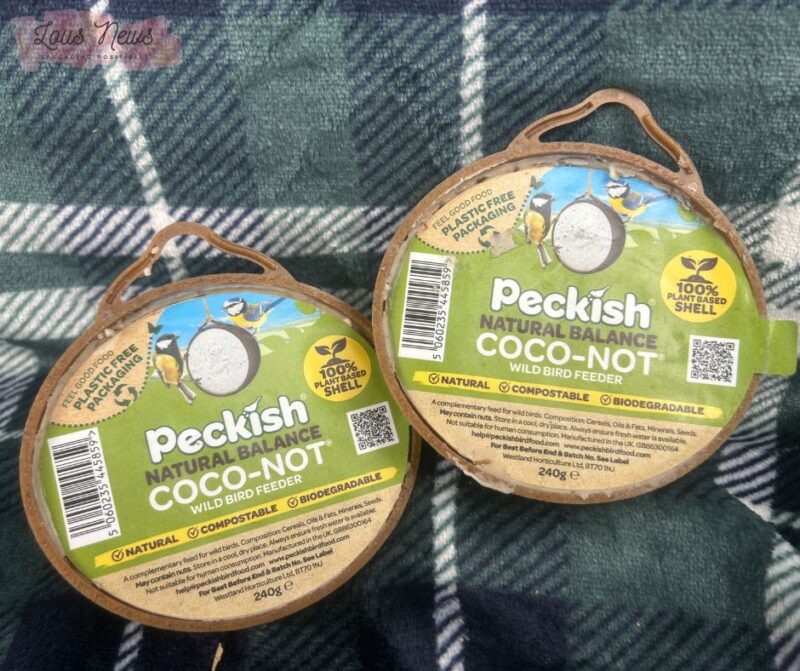40 Things To Give Up For Lent!
Lent comes around every year and I always hear the same question, what can I give up for lent? Giving up something isn’t easy and for 40 days might seem like a long time but it will soon be over which is the best part. There are also many reasons to give something up for lent which I’ll talk about a little bit more in detail in a bit, the one thing you have to keep in mind though, is it doable? You don’t want to say you’re giving up something for lent and then not be able to follow through, if you aren’t able to do it for 40 days it might leave you upset or depressed and that’s the opposite intention of lent.
What Are The Rules of Lent?
I’m not going to lie, when someone told me about Lent I had no idea what it was or what you had to do. Were there rules in place to follow or could anyone just do anything they wanted? Take a look at below for what are the rules of Lent?
Lent is a period of 40 days (not counting Sundays) that begins on Ash Wednesday and ends on Holy Saturday, the day before Easter Sunday. It is a time of reflection, penance, and preparation for the celebration of Easter in the Christian calendar. The rules and practices of Lent can vary among different Christian denominations, but here are some common aspects:
- Ash Wednesday:
- Lent begins on Ash Wednesday when many Christians attend a service where they receive ashes on their foreheads in the shape of a cross. The ashes are often made by burning palm branches from the previous year’s Palm Sunday.
- Fasting:
- Fasting during Lent involves abstaining from certain foods or meals. Traditionally, Christians may fast on Ash Wednesday and Good Friday by eating smaller meals and refraining from consuming meat.
- Abstinence:
- Abstinence during Lent often involves giving up specific luxuries or indulgences. Commonly, individuals abstain from certain types of food, such as meat on Fridays, as a form of penance.
- Meatless Fridays:
- Many Christians, especially in the Roman Catholic tradition, abstain from eating meat on Fridays during Lent. Instead, they may opt for fish or vegetarian meals.
- Prayer:
- Lent is a time for increased prayer and spiritual reflection. Many people commit to additional prayer practices, attend religious services more regularly, or participate in prayer groups.
- Almsgiving:
- Almsgiving involves acts of charity and generosity toward those in need. During Lent, individuals may engage in volunteer work, donate to charitable organizations, or participate in other acts of kindness.
- Penance and Repentance:
- Lent is a time for self-examination, repentance, and seeking forgiveness for sins. Some Christians may participate in the sacrament of reconciliation or confession during this period.
- Spiritual Disciplines:
- Individuals often take on additional spiritual disciplines such as reading scripture, attending religious studies, or participating in devotional practices.
- Easter Vigil:
- Lent concludes with the celebration of the Easter Vigil on Holy Saturday night, marking the resurrection of Jesus. This service is a central event in the Christian liturgical calendar.
It’s important to note that the specific rules and practices of Lent can vary among denominations and individual beliefs. Some Christians may choose to give up specific habits or indulge in additional spiritual disciplines based on personal convictions. It’s always advisable to consult with a religious leader or spiritual advisor for guidance on how to observe Lent within a specific faith tradition.
Do You Have To Be Religious To Do Lent?
It’s also important to note that you do not have to be religious to take part in Lent, anyone can take part and make a positive change in their life.

What To Give Up For Lent Ideas
Giving up for lent can be fun, you can challenge yourself which is always good to do. I find that when giving something up for lent it’s best to have a personal or health reasons behind it. This could be something like giving up smoking for lent. The 40 days of lent are great reasons to make a nice little lifestyle choice, it can help to shape you into a better person or get over some demons that you’ve been battling with for a while.
- Sweets/Junk Food: Giving up sugary treats promotes healthier eating habits and can be a form of self-discipline.
- Social Media: Taking a break from social media allows for more real-life connections, reduces distractions, and creates mental space.
- Caffeine: Abstaining from caffeine can be a physical and mental reset, promoting mindfulness and reducing dependency.
- Alcohol: Giving up alcohol fosters sobriety, self-control, and can be a form of sacrifice.
- Meat: Choosing a vegetarian or vegan diet during Lent, especially on Fridays, can be a way to honour sacrifice and promote mindfulness.
- Smoking or Vaping: Lent can serve as an opportunity to break free from addictive habits and prioritise health.
- TV or Streaming Services: Reducing screen time allows for more meaningful activities, such as prayer, meditation, or quality time with loved ones.
- Online Shopping: Abstaining from online shopping promotes financial discipline and discourages impulsive purchases.
- Gossiping: Giving up gossip fosters a more positive and compassionate communication style.
- Complaining: Choosing to be more positive and grateful by giving up complaining can lead to a happier mindset.
- Excessive Work Hours: Prioritising work-life balance during Lent allows for more time for self-care, family, and spiritual reflection.
- Video Games: Taking a break from video games promotes a healthier balance between screen time and other activities.
- Fast Food: Abstaining from fast food encourages healthier eating habits and mindfulness about food choices.
- Single-Use Plastics: Giving up single-use plastics aligns with environmental consciousness and stewardship.
- Multitasking: Abandoning multitasking fosters mindfulness, focus, and a more present approach to daily activities.
- Negative Self-Talk: Choosing positive self-affirmations over negative self-talk can enhance mental well-being.
- Procrastination: Giving up procrastination promotes productivity and discipline.
- Screen Time Before Bed: Reducing screen time before bed can improve sleep quality and overall well-being.
- Snoozing the Alarm: Giving up the snooze button encourages discipline and a more intentional morning routine.
- Fast Fashion: Abstaining from fast fashion supports ethical and sustainable consumption habits.
- Mindless Snacking: Giving up mindless snacking promotes healthier eating habits and mindfulness about food choices.
- Unhealthy Relationships: Lent can be a time to reflect on and distance oneself from toxic or unhealthy relationships.

What To Swap For Lent?
Lent isn’t just about giving something up for a while, it can be about healthy and positive changes in your life. You might consider giving up meat for lent, which is why it’s important to find healthier alternatives that you might carry on with after Lent has ended.
Giving up something cold turkey isn’t always the option so make sure you have something in place to help before giving up after a couple of days as you have nothing to substitute for what you’ve given up. Remember these swaps should be healthier and hopefully cheaper.
Take a look at some of the healthier swaps you can make for Lent. When you think of Lent ideas, make sure you have something in place.
- Whole Grains Instead of Refined Grains:
- Swap white bread, pasta, and rice for whole-grain alternatives like whole wheat bread, quinoa, or brown rice.
- Lean Proteins Instead of Fatty Meats:
- Choose lean protein sources such as skinless poultry, fish, beans, lentils, and tofu instead of fatty cuts of meat.
- Vegetarian Meals:
- Incorporate more vegetarian meals into your diet, focusing on plant-based proteins like beans, legumes, nuts, and seeds.
- Healthy Fats Instead of Saturated Fats:
- Opt for sources of healthy fats like avocados, nuts, seeds, and olive oil instead of saturated fats found in processed and fried foods.
- Fresh Fruits Instead of Sugary Snacks:
- Choose fresh fruits as snacks instead of sugary treats. They provide natural sweetness along with vitamins and fibre.
- Green Tea Instead of Sugary Drinks:
- Swap sugary beverages with green tea or herbal teas for a healthier and hydrating option.
- Water Instead of Soda:
- Opt for water over sugary sodas. Adding a slice of lemon or cucumber can enhance the flavour.
- Homemade Meals Instead of Takeout:
- Cook more homemade meals using fresh ingredients instead of relying on takeout or processed foods.
- Greek Yogurt Instead of Regular Yogurt:
- Choose Greek yoghurt for its higher protein content and lower sugar content compared to some flavoured yoghurts.
- Baked Instead of Fried:
- Bake or grill foods instead of frying them to reduce the intake of unhealthy fats.
- Homemade Dressings Instead of Store-Bought:
- Make your own salad dressings using olive oil, vinegar, and herbs instead of using store-bought dressings that may contain added sugars and preservatives.
- Vegetable Noodles Instead of Regular Pasta:
- Try spiralised vegetable noodles (zoodles) instead of traditional pasta for a lower-carb and veggie-packed alternative.
- Low-Sodium Options:
- Choose low-sodium versions of canned soups, broths, and other packaged foods to reduce your salt intake.
- Natural Sweeteners Instead of Sugar:
- Use natural sweeteners like honey, maple syrup, or agave nectar in moderation instead of refined sugar.
- Portion Control:
- Practice portion control to avoid overeating, and pay attention to hunger and fullness cues.
- Frozen Fruit Instead of Ice Cream:
- Enjoy frozen fruits like berries or banana slices as a refreshing and naturally sweet dessert instead of traditional ice cream.
- Herbs and Spices Instead of Salt:
- Flavour your dishes with herbs and spices instead of excessive salt to reduce sodium intake.
- Nut Butter Instead of Butter or Margarine:
- Spread nut butter on whole-grain toast or use it as a dip instead of regular butter or margarine.








